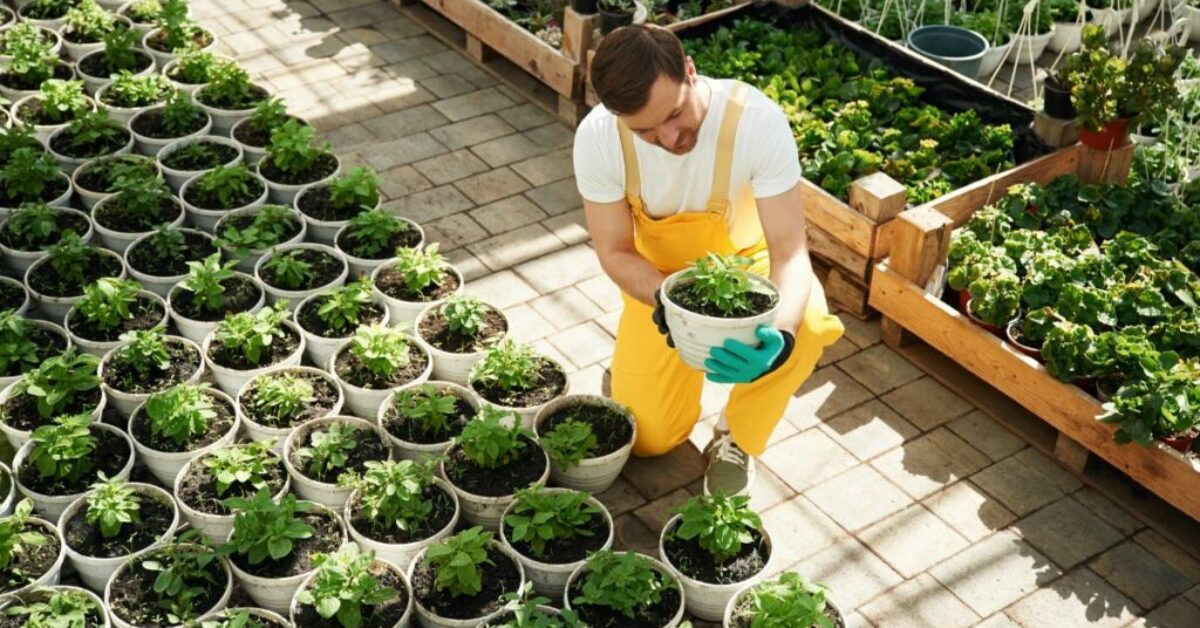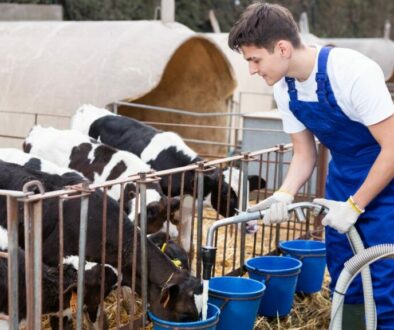How To Become A Horticulturist?
If you’re someone who has always been fascinated by plants and loves to work with greenery, then becoming a horticulturist could be the perfect career path for you. In this article, we’ll discuss the steps to becoming a horticulturist, the skills you’ll need, what a horticulturist is, and the benefits of working in this field.
Steps To Becoming A Horticulturist
The world of horticulture is vast and diverse, encompassing everything from plant breeding and propagation to landscape design and urban agriculture. If you’re passionate about plants and want to turn that passion into a career, becoming a horticulturist may be the perfect path for you. Here are some steps to help you get started on your journey.
- Obtain a Degree
While it’s possible to become a horticulturist without a degree, most professionals in the field hold at least a bachelor’s degree in horticulture, botany, environmental science, or a related field. During your studies, you’ll learn about plant physiology, soil science, pest and disease management, and other important topics related to plant health and growth. You’ll also have the opportunity to gain hands-on experience through lab work and field trips.
- Gain Practical Experience
After obtaining your degree, it’s essential to gain practical experience in the field. This may involve working at a plant nursery, arboretum, or botanical garden. You may also consider internships or apprenticeships with horticulturists to gain hands-on experience. To explore internship and apprenticeship opportunities, the American Horticultural Society (AHS Gardening), Seed your Future offers a wealth of resources for individuals interested in gaining hands-on experience in horticulture.
During this time, you’ll learn important skills such as plant identification, propagation, pruning, and pest control. You’ll also have the opportunity to network with other professionals in the field and gain valuable references for future job opportunities. - Specialize in a Specific Area
Once you have experience under your belt, you can begin to specialize in a specific area of horticulture. This could include research, landscaping, greenhouse management, or organic farming. Specializing allows you to focus on areas that interest you the most and gain advanced knowledge in a specific field. It also makes you more marketable to employers who are looking for specific skills and expertise.
- Stay Current with Industry Trends
The field of horticulture is constantly evolving, with new technologies, techniques, and plant varieties emerging all the time. To stay competitive in the field, it’s important to stay current with industry trends and advancements. This may involve attending conferences, workshops, or webinars, or simply reading industry publications and staying active on social media.
For instance, the American Society for Horticultural Science (ASHS) offers a variety of resources, including publications and events, to help professionals stay informed about the latest developments in horticulture.
Additionally, subscribing to industry publications such as Horticulture Magazine can provide valuable insights into current trends and best practices.
Becoming a horticulturist is a rewarding and fulfilling career path for those who are passionate about plants and the environment. By following these steps, you can gain the education, experience, and expertise needed to succeed in this exciting field.
Skills Needed to Become a Horticulturist
In addition to the skills listed above, there are a few other qualities that can help you excel as a horticulturist. One of these is creativity. Horticulture is a field that requires a lot of problem-solving and thinking outside the box. You may need to come up with new ways to grow plants in challenging environments, or figure out how to design a garden that meets a client’s specific needs.
Another important quality for horticulturists is patience. Growing plants is a slow process, and it can take months or even years to see the results of your hard work. You’ll need to be able to wait for plants to grow and develop, and be willing to put in the time and effort needed to help them thrive.
Good record-keeping skills are also important for horticulturists. You’ll need to keep track of things like soil pH, watering schedules, and fertilizer applications, in order to ensure that your plants are healthy and growing properly. This requires attention to detail and the ability to stay organized.
Finally, horticulturists need to be passionate about their work. This is a field that requires a lot of dedication and hard work, and it’s important to truly love what you do in order to be successful. If you have a deep appreciation for plants and the natural world, and are excited about the prospect of working with them every day, then horticulture may be the perfect career for you.
What is a Horticulturist?
In addition to managing plant growth, horticulturists also play a crucial role in preserving and protecting plant species. They work to identify and manage invasive species, develop new plant varieties, and conserve endangered plant species. This work is essential for maintaining the biodiversity of our planet and ensuring that future generations have access to a wide variety of plant life.
Horticulturists may also specialize in specific areas, such as landscape design or plant pathology. Those who specialize in landscape design work to create beautiful and functional outdoor spaces, using their knowledge of plant growth and design principles to create stunning gardens and landscapes. Those who specialize in plant pathology focus on identifying and treating plant diseases, working to prevent the spread of disease and ensure healthy plant growth.
Another important aspect of a horticulturist’s job is staying up-to-date with the latest research and developments in the field. They may attend conferences or read scientific journals to stay informed about new techniques and technologies that can improve plant growth and health.
Overall, horticulturists play a vital role in the cultivation and management of plants. Through their work, they help to ensure that we have access to a diverse range of plant species, and that our gardens, parks, and natural spaces are healthy and thriving.
The Benefits of Becoming a Horticulturist
Aside from the benefits mentioned above, working as a horticulturist also provides individuals with opportunities to work on projects that have a positive impact on society. For example, horticulturists may work on projects that involve designing and maintaining community gardens, which provide fresh produce to people who may not have access to it otherwise. Horticulturists may also work on projects that involve restoring natural habitats for wildlife, which can help to preserve endangered species.
Horticulturists also have the opportunity to work with a wide variety of plants, including exotic and rare species. This can be a particularly exciting aspect of the job for those who have a passion for botany and plant biology. Additionally, horticulturists may have the opportunity to travel to different parts of the world to study and collect plant specimens.
Another benefit of working as a horticulturist is the opportunity to work with and educate others. Horticulturists may work with garden clubs, schools, and community organizations to provide education on gardening and plant care. They may also work with local government agencies to develop and implement policies related to environmental conservation and sustainability.
Finally, working as a horticulturist can be a great way to promote physical health and well-being. The job often involves physical labor, such as digging, planting, and pruning, which can provide a good workout. Additionally, spending time outdoors and in nature has been shown to have numerous health benefits, including reducing stress and improving mood.
Overall, working as a horticulturist can be a fulfilling and rewarding career that offers a wide range of benefits. From working with exotic plants to promoting environmental conservation, horticulturists have the opportunity to make a positive impact on the world around them.
Becoming a horticulturist involves obtaining a degree in horticulture or a related field, gaining practical experience, and specializing in a particular area. The key skills necessary for becoming a successful horticulturist include attention to detail, effective communication, physical stamina, and a love for the natural environment. Working as a horticulturist offers many benefits, including opportunities for specialization, job growth, and the satisfaction of contributing to the preservation of the environment.




